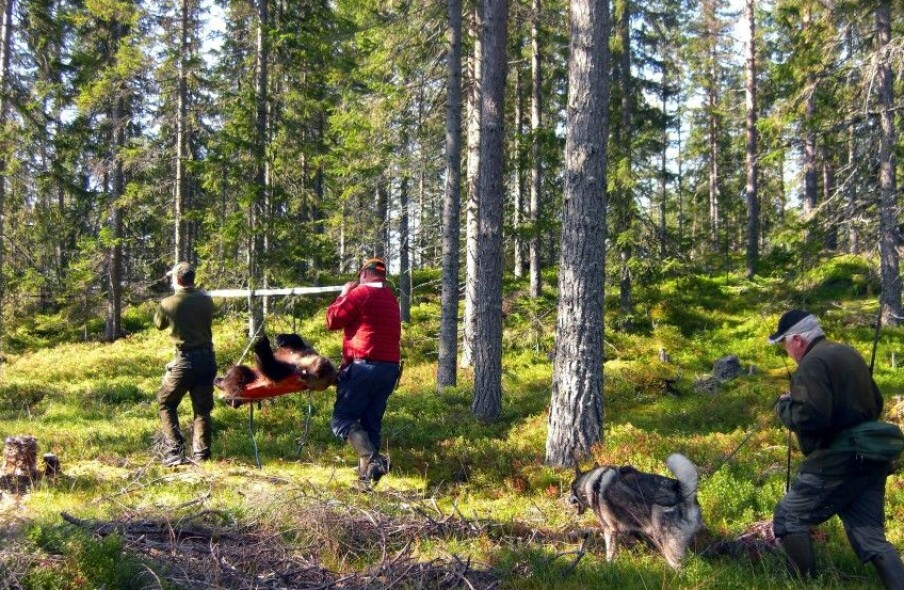This article is produced and financed by the Norwegian University of Life Sciences (NMBU) - read more
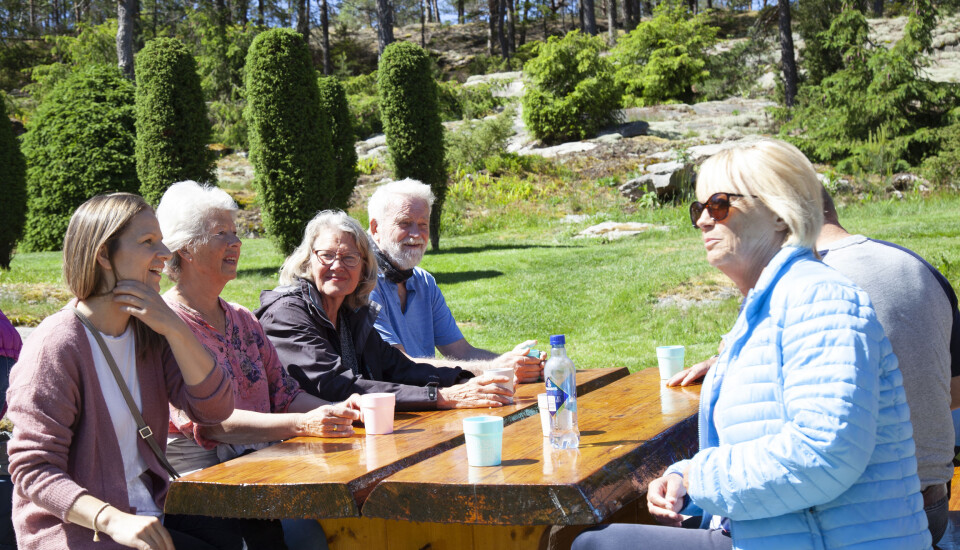
A day on the farm works wonders for people with dementia
People with dementia sit still less, are more active socially and physically and are in a better mood on a farm than in a daycare centre.
Around the breakfast table at Stene Farm there’s a lot of chatting and laughter. Like when a group of good old friends meet, there isn’t a moment’s silence during the hour it takes to eat a good breakfast.
“Breakfast is the most lively time of the day,” says Mona Skogen On her farm in Onsøy, Mona Skogen welcomes people with dementia five days a week as part of the offer of dementia care on farms, which she operates in cooperation with Fredrikstad Town Council.
A better mood
In a study comparing different daycare activities for people with dementia, researchers found that clients are in a good mood for over half the time they spend on a farm. In ordinary daycare centres, they observed that clients were in a good mood 34 percent of the time. The study is part of a comprehensive research project on daycare activities for people with dementia.
On a farm, clients are also more socially and physically active than in ordinary daycare centres. Clients are socially active for over 80 percent of the time they spend on a farm, compared with just over half the time in a daycare centre. They also sit still much less.
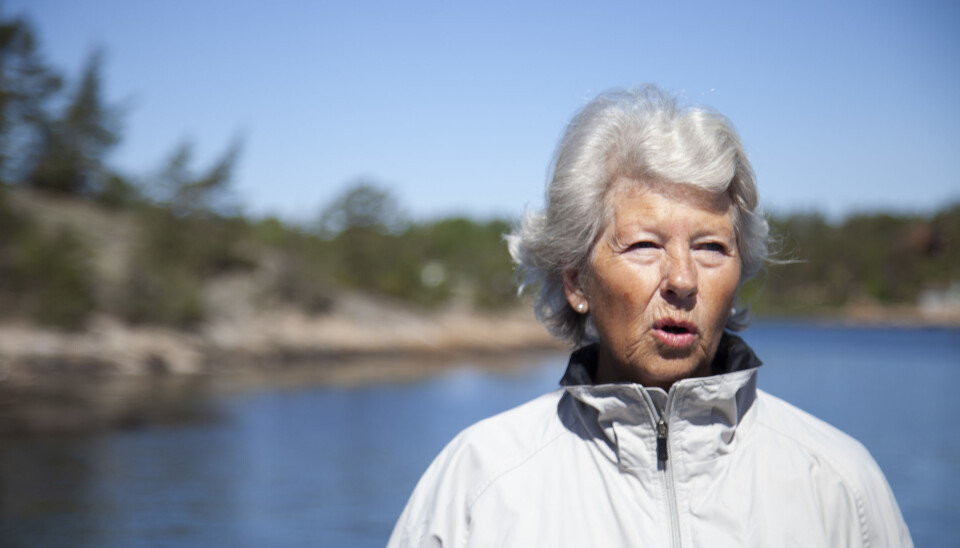
Exploring clients’ activities
While they pass ham, cheese and jam across the table, clients chat about a tomato plant that got big on the farm last summer. It was the biggest and finest tomato plant anyone had seen, and they just ate and ate.
"Many people here struggle to remember things, but nobody forgets that tomato plant," said Mona.
Three of the six clients around the breakfast table are participating in the study where researchers have explored daycare activities on ten farms and seven ordinary centres.The researchers have examined activities, the physical environment, social interaction and clients’ mood. The aim has been to explore the quality of daycare activity programmes.
Plenty of walks
In ordinary daycare centres, the most frequently used activities are indoor sitting exercises and dancing, along with board games, quizzes, reading aloud and needlework. On the farm, much of the activity takes place outdoors, including different types of farm work, contact with animals and walks in the countryside.
But it’s not typical farming activities that await the group at Stene Farm today. Once a year they have an excursion to Risholmen, one of many islands off the coast near Fredrikstad. With the help of the Norwegian Agricultural College, which today is part of NMBU, the philanthropist Heddy Astrup established the first plantations on the island around 1950. What started as a few plants has now become a thousand rhododendrons which are all in full bloom this warm spring day in late May.
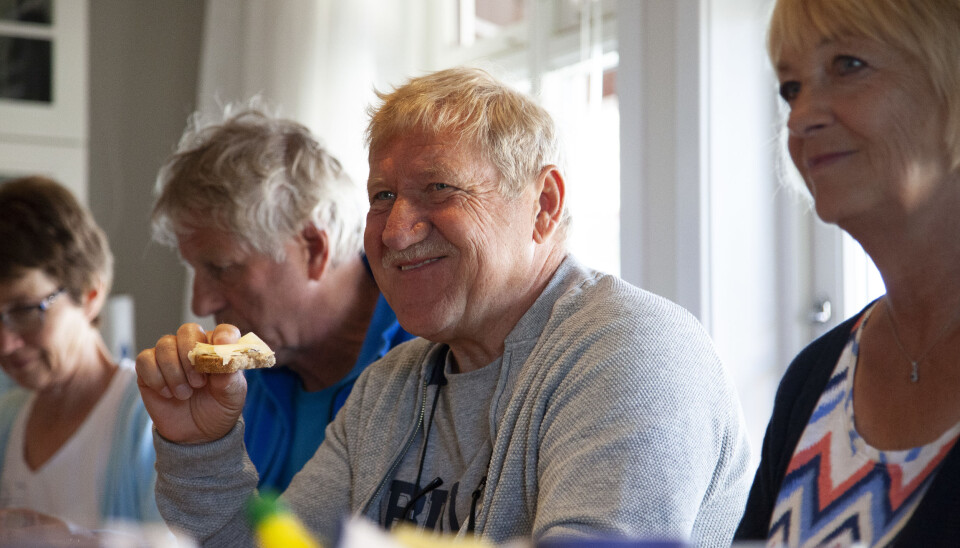
People who want to be clients on the farm must be able to walk three kilometres. Each day there is always a walk, often starting from the farm, and sometimes excursions in the surrounding area.
“We’ve also had some excursions to town, but they become too stressful. There’s too much to deal with,” Mona Skogen admits.
But a walk in the countryside allows people to clear their thoughts.According to Lina Ellingsen-Dalskau, one of the researchers in the project, it is well documented that walks in the countryside decrease stress.
"One of the biggest differences between farms and other daycare activities is that clients spend more than half the time outdoors," says the NMBU researcher.
Lots of activity, but also rest
The everyday activities on the farm consist of light farm work, walks, contact with animals and nature experiences.

“At first I thought we would do more farm work. But I soon realised that the idea is not to do too much work. We also need plenty of time to rest. And it’s best if clients get to do things they can cope with,” says Mona.
On Stene Farm, we also find clients sitting on the sofa watching Hancock’s Half Hour.They agree that the oldest episodes, the ones in black and white, are the best ones.
Tailoring to clients’ needs
Mona Skogen is a farmer, but she also has a background as a furniture upholsterer. That was just the ticketfor Lilian Johansen, who originally thought she did not need any programme.But when she realised that she could learn about furniture upholstery in the workshop on the farm, she changed her mind. Now she talks about the farm as her second home.
“Almost all the clients here today didn’t really want to come here,” says Mona. “None of them felt the need for this kind of programme, but today they all say they’re very happy to be part of it and they continue for many years.” The key, she believes, is to find activities that suit each individual client.
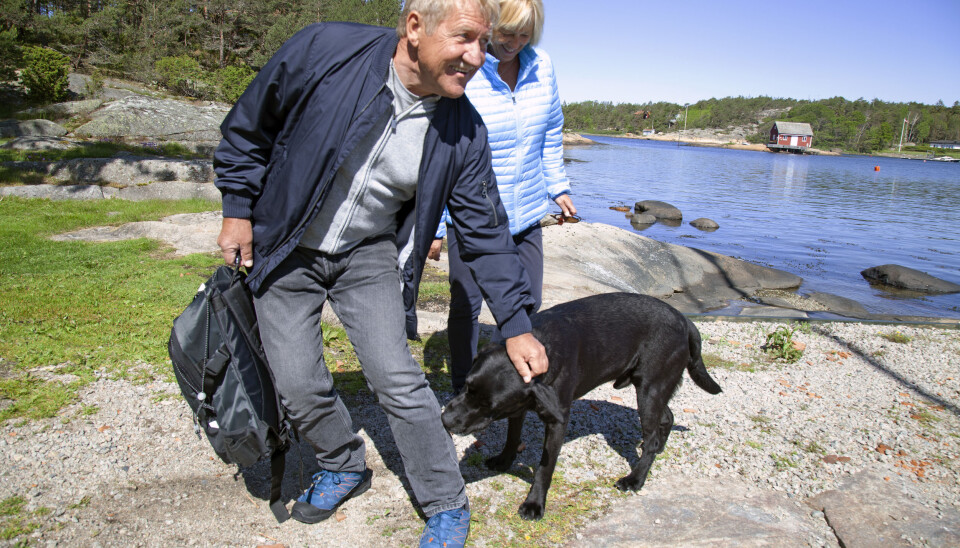
In a related study, researchers interviewed seven farmers who offer dementia care. The farmers typically found that they spent a lot of time finding suitable activities for the level of functioning, interests and preferences of each client. They also work hard at social interaction to ensure that there is a pleasant atmosphere and that clients get on well together.
“We see that it’s important to have varied activities that suit different people. At the same time, the farm programme is not supposed to dominate their everyday lives, but it can be an important supplement with a slightly different content for those who need it,” explains Lina Ellingsen-Dalskau.
Some just sit at home
Around one in five people with dementia currently has access to a daycare programme. Most want to stay at home but also have a need for public services, including daycare.
A recent Norwegian study shows that people who have used daycare services report better quality of life than those who have not.
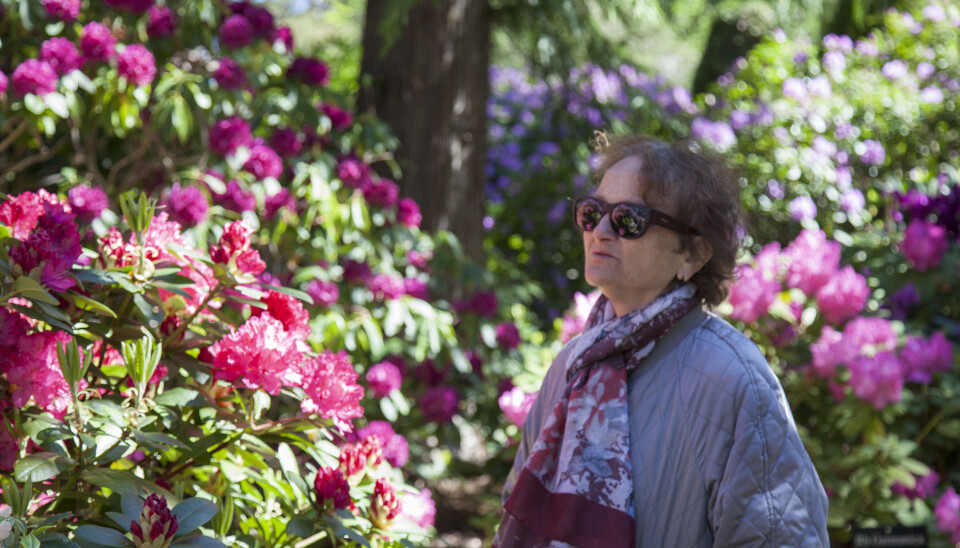
By 2020, all Norwegian local authorities must offer daycare to people with dementia. But still there will not be room for all dementia sufferers.
“It’s obvious that these services are a big expense for local authorities.It's cheaper if they just stay at home. But what kind of society do we really want to have?” asks the NMBU researcher.
People from well-educated families with good finances use the services the most.
“In the new Public Health Report published in April, lifelong quality of life is emphasised. It is no less important when people get old or are diagnosed with dementia.”
———
The studies on dementia care on farms have not yet been published, but have been submitted to journals for review.










